Grooved Aluminum Lean Tubes for Modular Frameworks
Aluminum Lean Tubes are a pipe system designed for constructing lightweight, modular structures. These tubes are widely used for manufacturing workstations, supports, frames, display racks, and other applications that require a light yet sturdy structure.
- Modular Design:Easy to assemble and disassemble, allowing for quick adjustments to structures.
- Lightweight and Strong: Made from aluminum alloy, they are strong yet easy to move.
- Easy Installation: Can be quickly installed and removed with the right connectors.
- Versatile Applications: Suitable for various industries, including automation, warehousing, education, and exhibitions.
Grooved Aluminum Lean Tubes
Grooved aluminum lean tube is a versatile aluminum tube designed with grooves along its surface, making connections quick and easy—just like T-slot profiles. Crafted from lightweight aluminum alloy through the aluminum extrusion process, it usually has an outer diameter of 28mm and wall thicknesses ranging from 0.8mm to 2.0mm. This smart design allows for fast assembly into all sorts of structures. Plus, when paired with specialized connectors and accessories, it’s perfect for creating material carts, shelves, workstations, and much more.
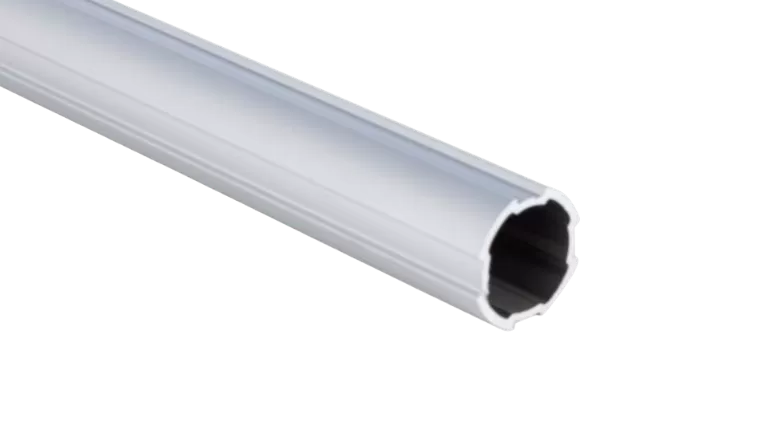
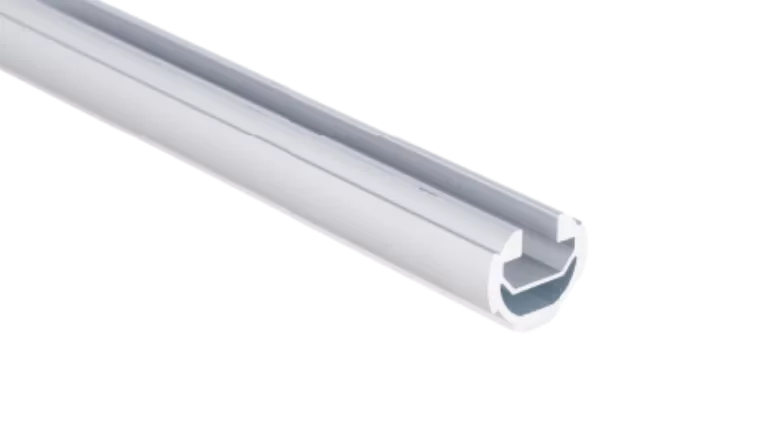
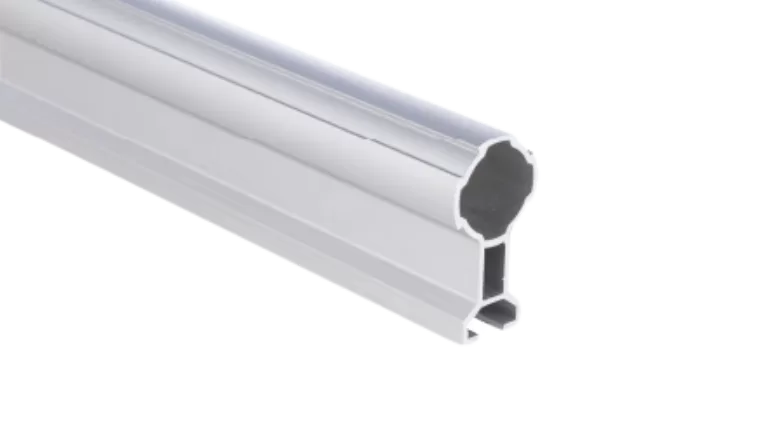
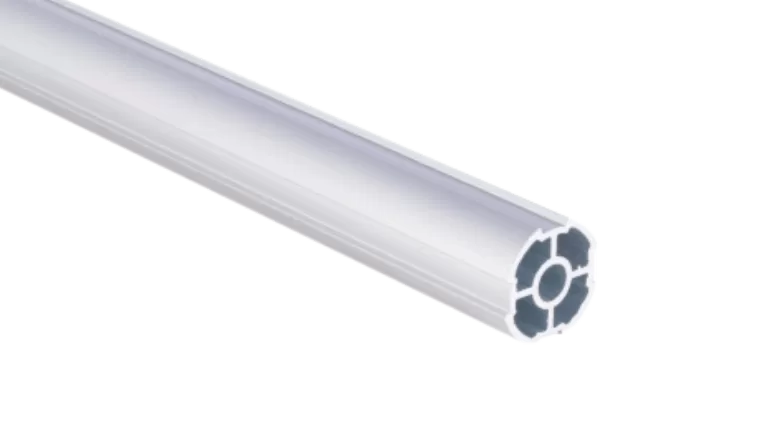
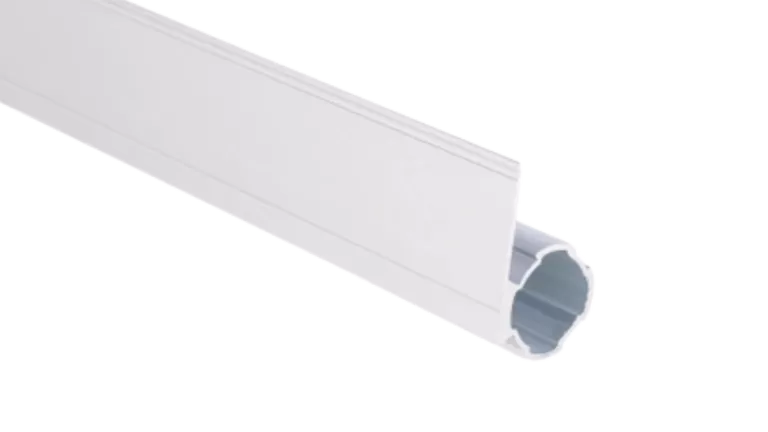
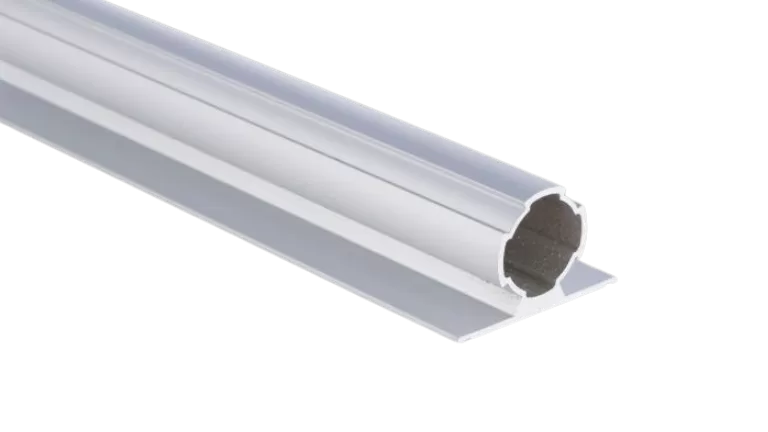
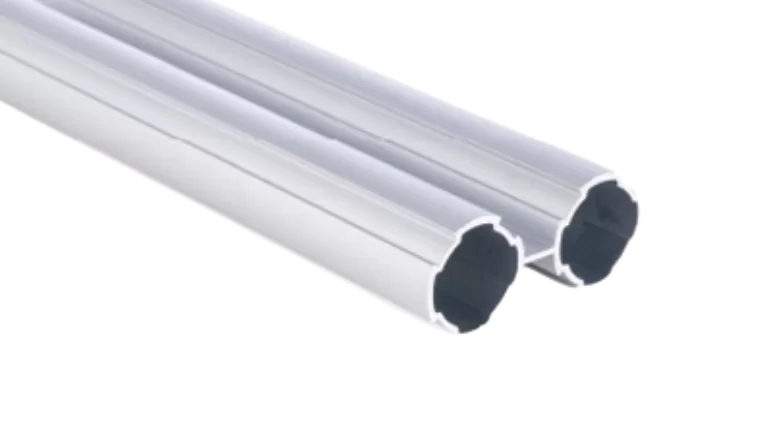
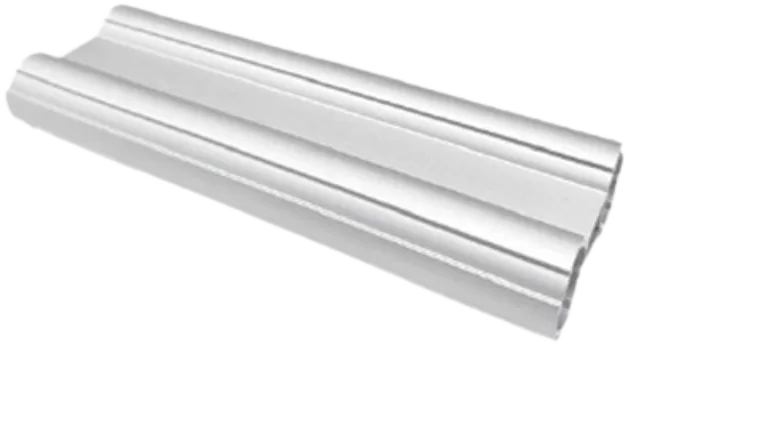
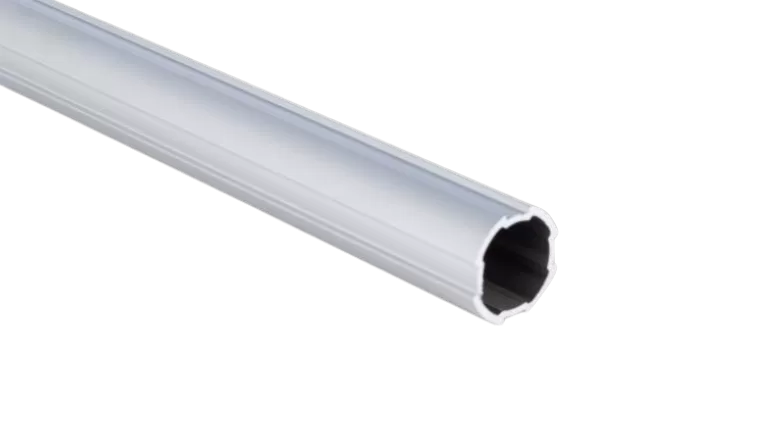
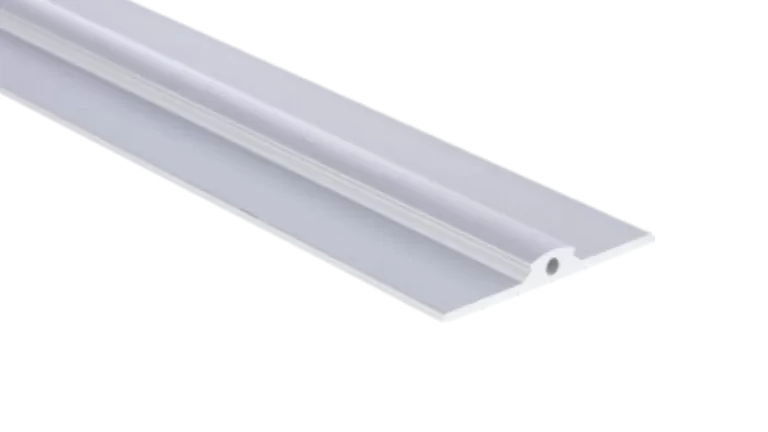
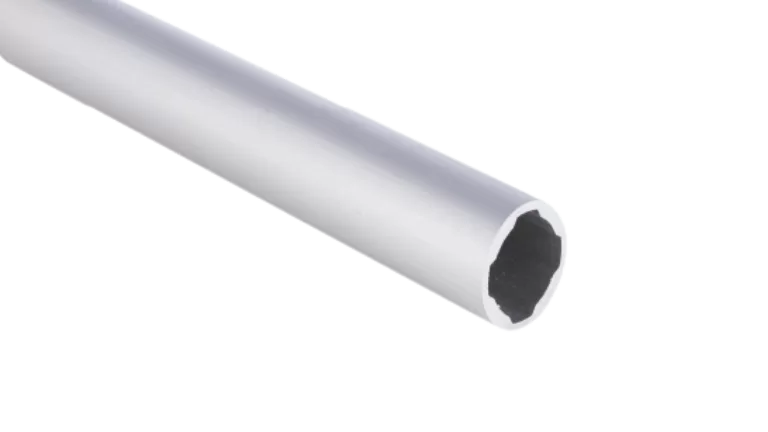
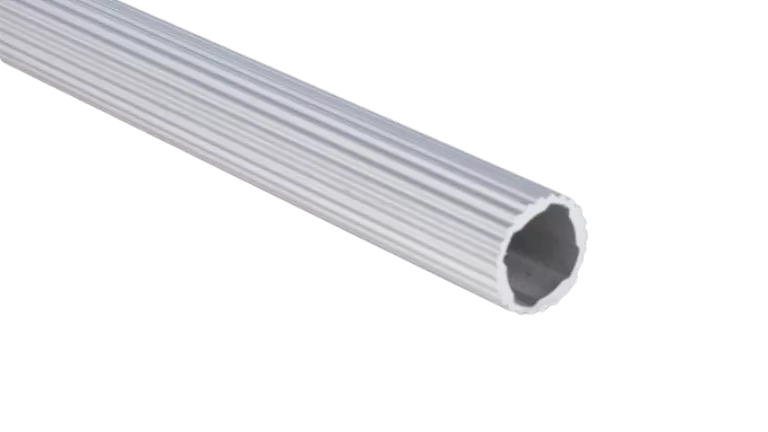
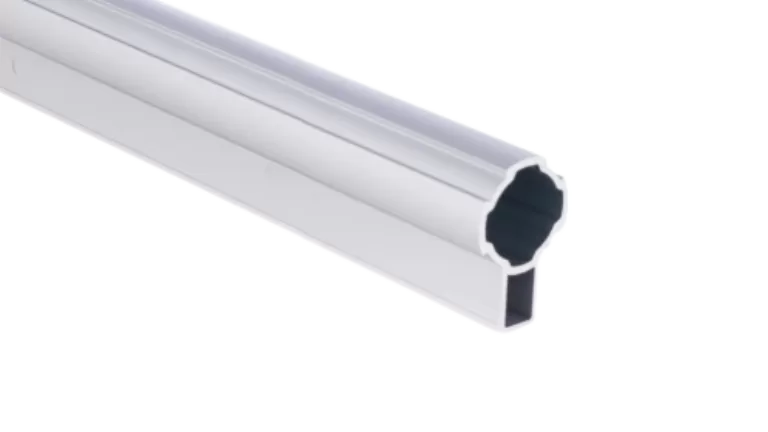
Aluminum Lean Tube Specifications
| Item | Specification |
|---|---|
| Material | Aluminum alloy (6061/6063) |
| Outer Diameter | 19mm, 28mm, 43mm |
| Wall Thickness | 1.2mm, 1.7mm |
| Length | 4 meters per piece |
| Color | Natural color, Anodized color |
| Load Capacity | Depends on diameter and thickness |
| Surface Treatment | Oxidized sandblasting, Anodizing |
| Anodized Film Thickness | 10-25 micrometers |
| Application Area | Industrial equipment, Furniture, Display racks |
Connection Methods for Aluminum Lean Tube
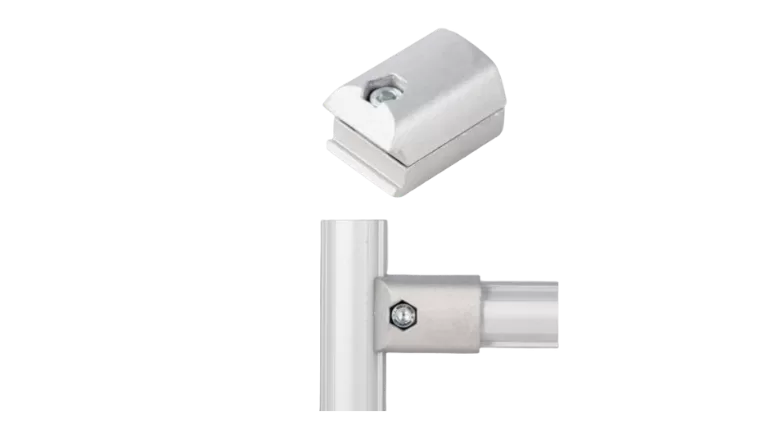
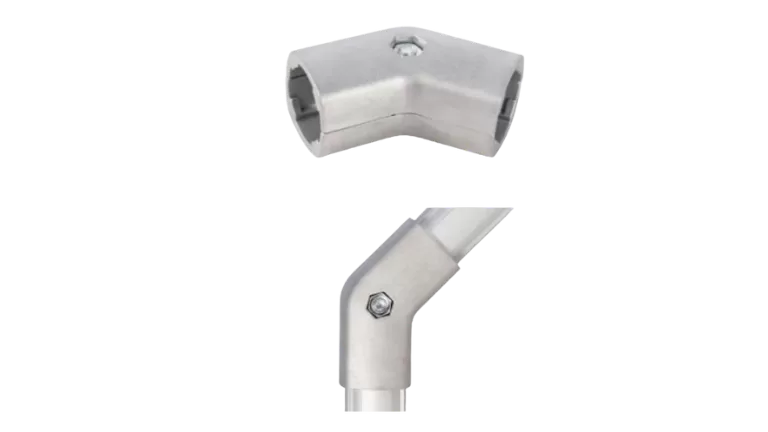
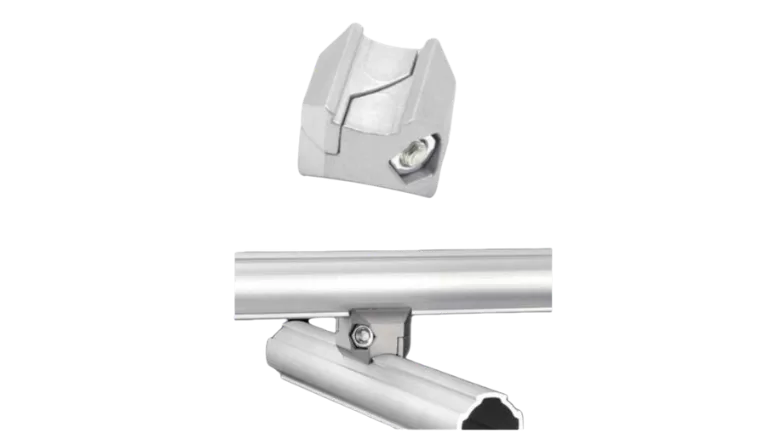
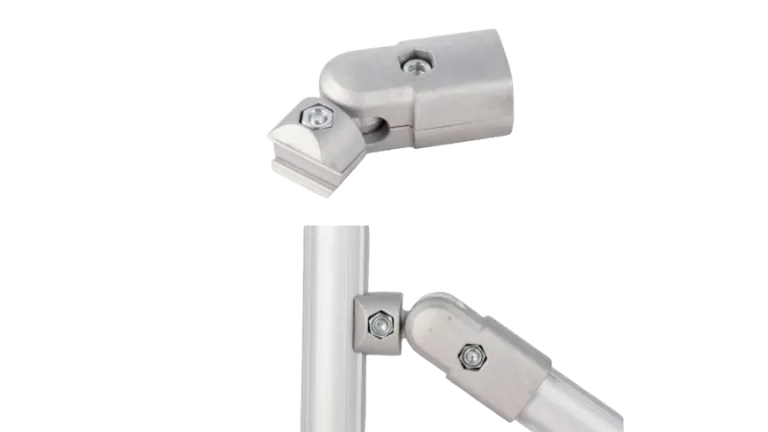
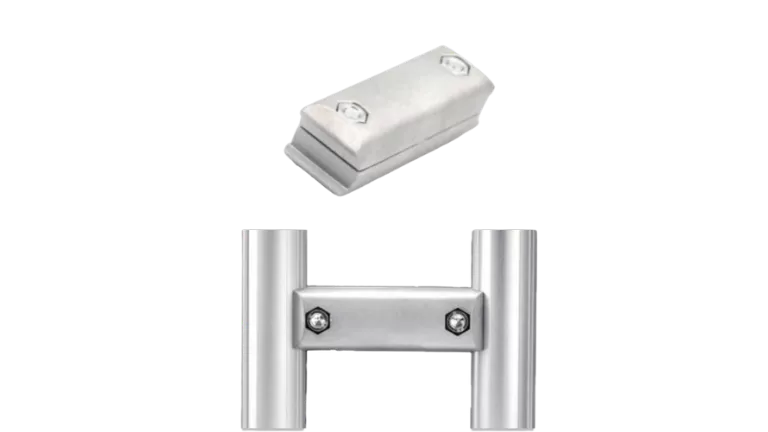
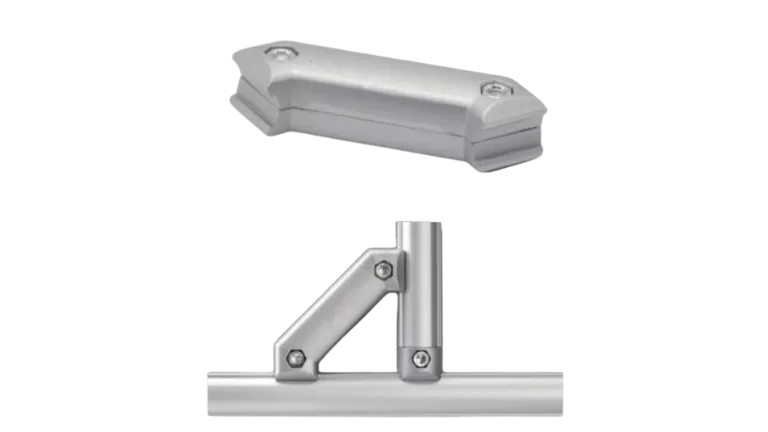
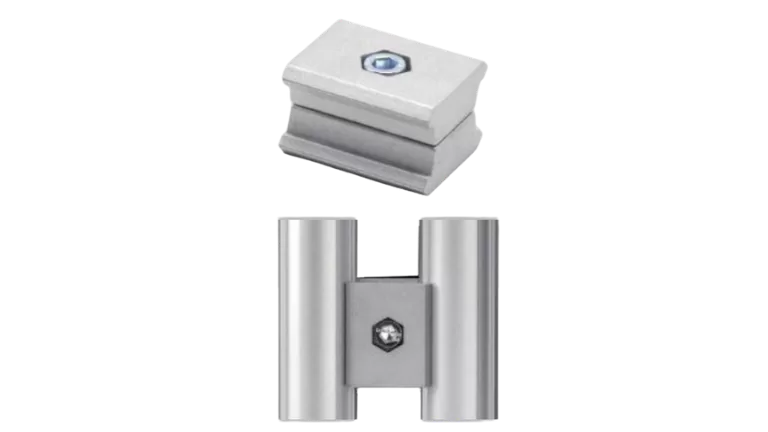
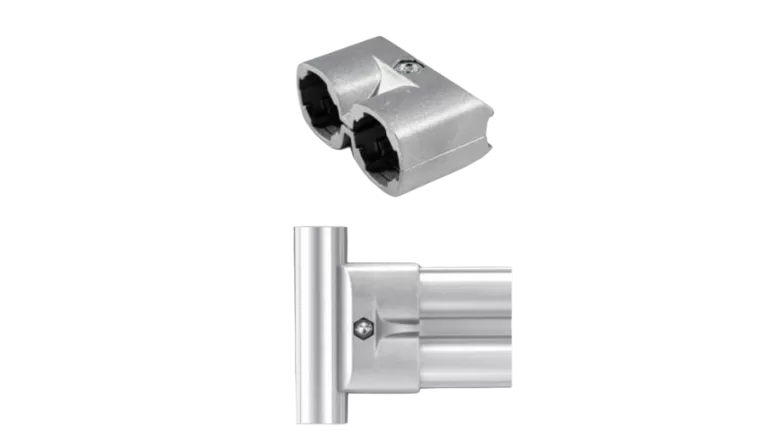
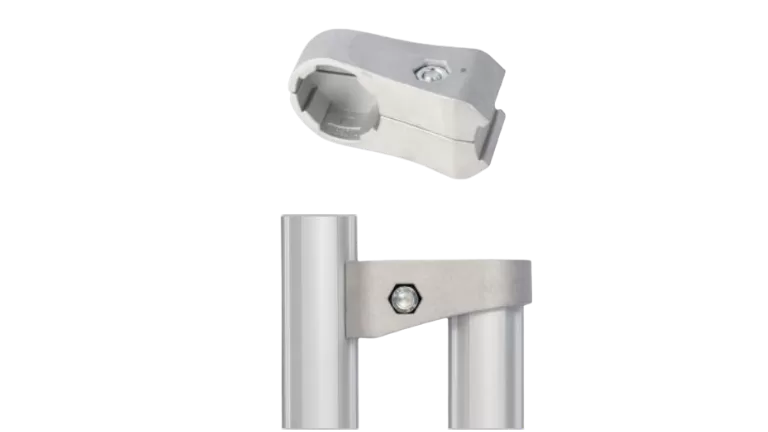
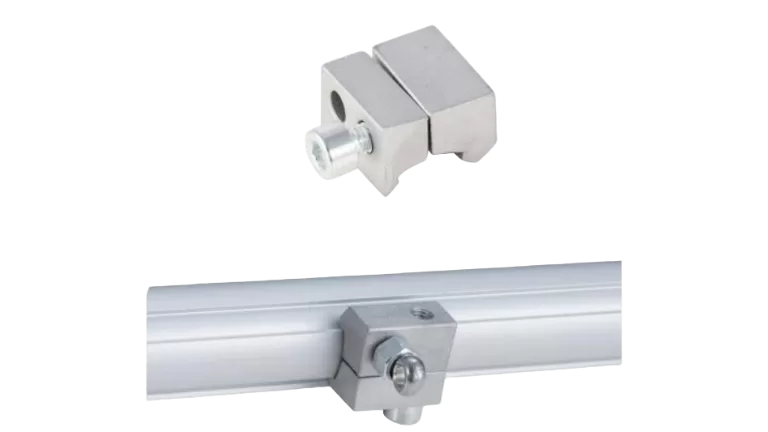
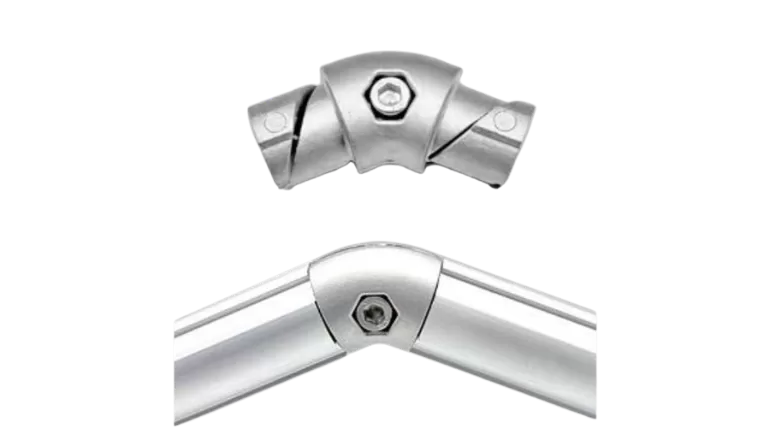
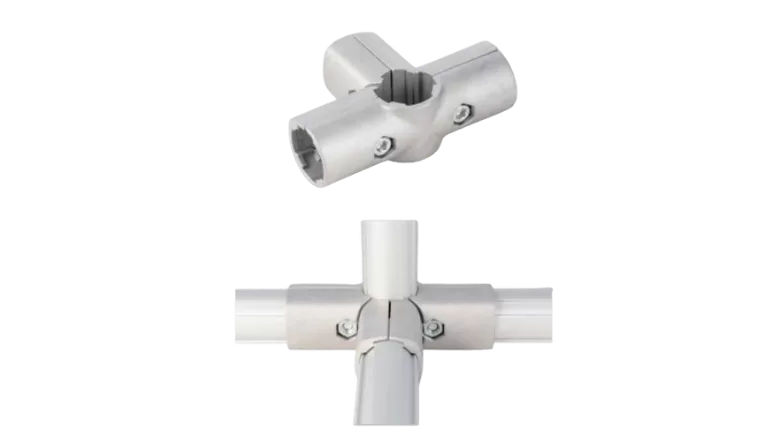
Materials Used in Aluminum Lean Tubes
Aluminum lean tubes are generally produced from the 6063-T6 alloy, celebrated for its outstanding mechanical properties, durability against corrosion, and versatility. This alloy is particularly suitable for designing lightweight yet sturdy structures. Beyond our standard offerings, we provide custom alloys tailored to specific performance standards and environmental needs, ensuring adaptability for a wide range of applications.
The 6063 aluminum alloy primarily consists of aluminum (97.5% to 98.5%) mixed with magnesium (0.45% to 0.9%) and silicon (0.2% to 0.6%). The T6 designation signifies that the alloy has undergone a specialized heat treatment process, which significantly enhances its strength as it ages.
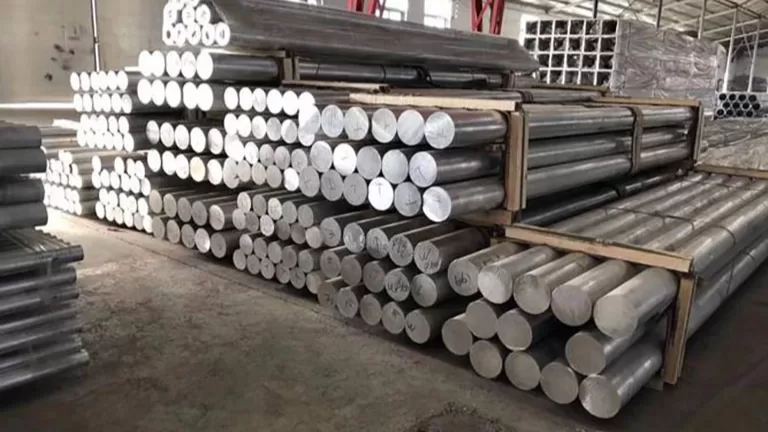
Process for Aluminum Lean Tubes
We offer tailored aluminum lean tube solutions that leverage cutting-edge technology and premium materials to boost your production efficiency! Here are the key aspects of our process:
1. Personalized Mold Design and Manufacturing: The process starts with creating molds based on the client’s specifications or samples. Our engineers utilize CAD software to design 3D models and then produce the molds using materials like steel or aluminum through CNC machining. Once prototypes are ready, they are sent to the client for approval.
2. Expert Aluminum Extrusion: At HTS-ALU, we employ state-of-the-art aluminum extrusion equipment. The aluminum billets are heated to temperatures between 400 and 500 degrees Celsius to enhance their plasticity. After heating, the aluminum is shaped into the desired profile of the lean tubes using custom-designed molds. Following extrusion, the tubes undergo T5 or T6 heat treatment, significantly improving their strength and corrosion resistance.
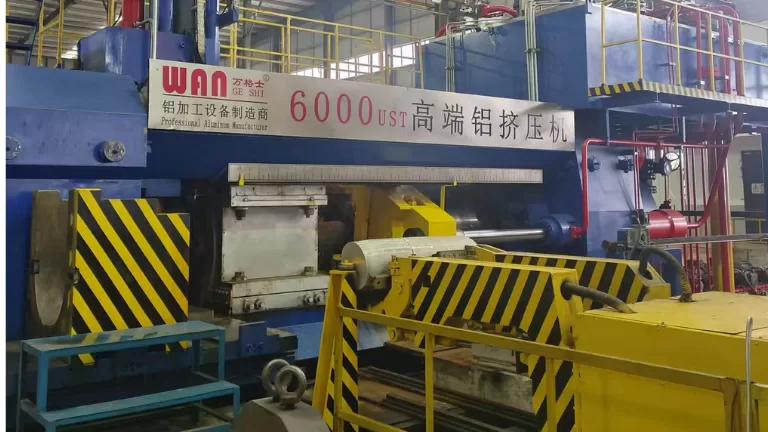
3. Surface Treatment: The surface treatment of aluminum lean tubes commonly includes silver anodizing, which not only boosts corrosion resistance but also enhances visual appeal. We can also customize the surface to feature sandblasted silver anodizing according to customer preferences. The anodized layer can reach up to 25 micrometers in thickness through a thermal oxidation process, ensuring durability and a premium finish that meets diverse application needs. Additionally, a variety of other surface treatments can be carried out based on specific client requests.
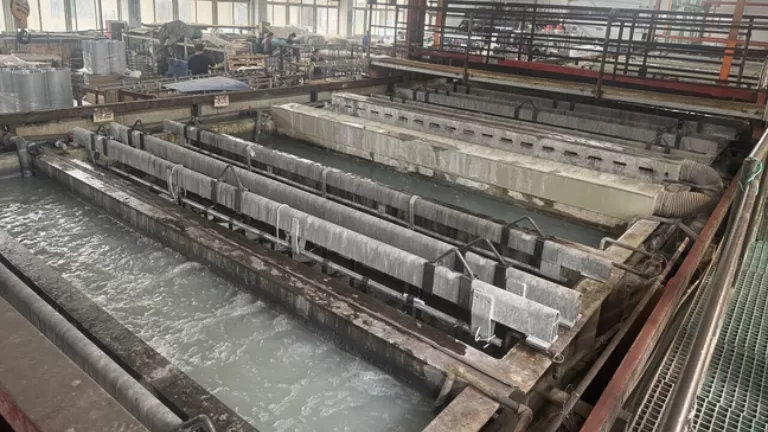
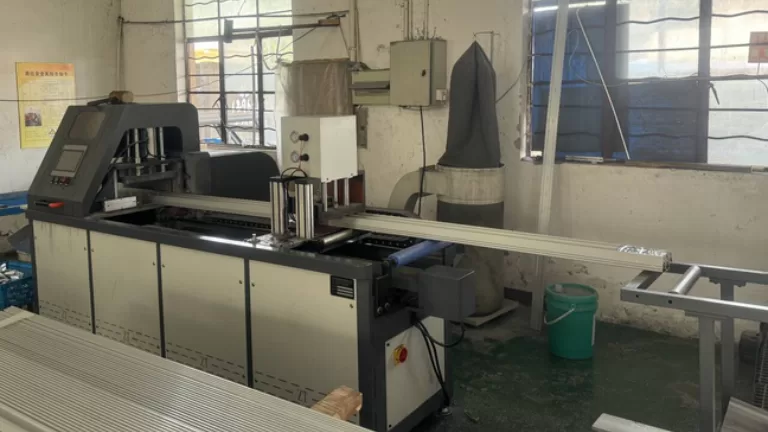
Grooved Lean Tubes VS Traditional Tube Systems
Grooved lean tubes, or Third-Generation Lean Tubes, provide a modern solution for piping systems that enhance flexibility and efficiency in manufacturing. With a unique grooved connection, these tubes allow for easy assembly, disassembly, and reconfiguration to meet changing production needs, enabling manufacturers to optimize workflows effortlessly.
| Features | Third-Generation Lean Pipes | Traditional Piping Systems |
|---|---|---|
| Flexibility | Highly flexible and easy to reconfigure | Difficult to modify, requires redesign |
| Installation Time | Quick installation and commissioning | Time-consuming and complex installation |
| Material Utilization | High-strength, lightweight materials reduce waste | Conventional materials are heavier and more complex |
| Function Integration | Multiple functional options without additional construction | Functions are independent, requiring extra components or tools |
| Adaptability | Adapts to changing production needs | Fixed design with limited adaptability |
| Cost Efficiency | Long-term savings on labor and material costs | Higher initial costs with significant long-term maintenance expenses |
Practical Uses of Aluminum Lean Tubes
Aluminum lean tubes, a specialized type of aluminum product, find utility in various sectors, including:
Industrial Production Lines: Designed to optimize automated production workflows and workstations, enhancing overall efficiency.
Warehousing Solutions: Integral in shelving and storage systems, these tubes aid in organizing and classifying items effectively.
Transportation Equipment: Perfect for creating lightweight mobile solutions like carts and workbenches, facilitating easy material handling.
Assembly Stations: Offer sturdy work surfaces for operators, providing much-needed support during assembly tasks.
Machine Structures: Commonly used to build robust frames for machinery and equipment, ensuring strength and flexibility.
Sustainable Projects: Thanks to aluminum’s recyclability, lean tubes are often incorporated into eco-friendly development initiatives.
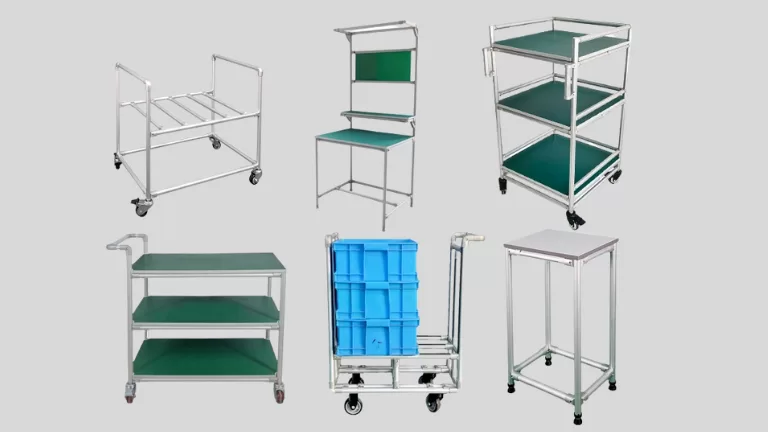
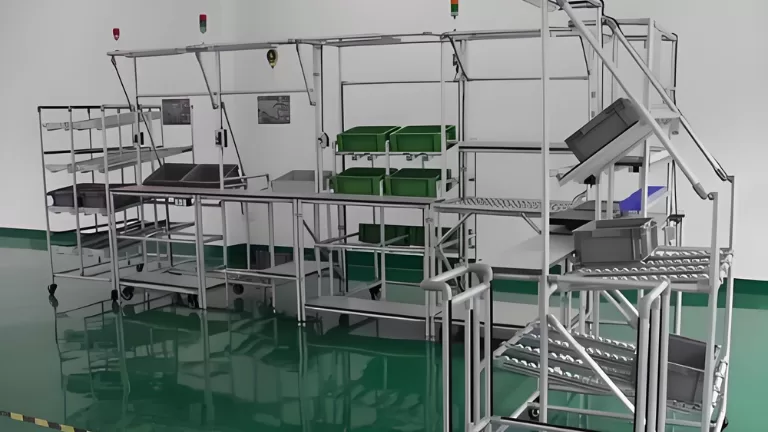
Comparison of Lean Tubes and Steel Tubes
There are distinct differences between aluminum lean tubes and steel tubes regarding material, production methods, costs, and applications.
1. Material and Production:
Aluminum Lean Tubes: Crafted from aluminum alloys and undergo processes such as sandblasting and anodizing to enhance corrosion resistance and longevity. They feature a sleek, smooth finish.
Steel Tubes: Made from various steel types, including carbon and alloy steels, these can be produced as either seamless or welded. Generally, they have rougher surfaces and are more susceptible to corrosion compared to aluminum lean tubes.
2. Cost:
Aluminum Lean Tubes: Manufactured on automated production lines, helping to keep costs down. They are also reusable, further reducing expenses, particularly in large-scale production.
Steel Tubes: Often more costly to produce, especially the seamless varieties and those made from specialized materials.
3. Uses:
Aluminum Lean Tubes: Widely utilized in sectors such as home appliances, communications, automotive, and machinery manufacturing. Their lightweight and eco-friendly characteristics make them a preferred choice in modern construction over traditional steel tubes.
Steel Tubes: Commonly applied in diverse fields, including transport pipelines, construction, thermal equipment, and petrochemical industries. While they have broad usage, they may not always be ideal for applications requiring lightweight and efficient materials.
Factory Show
Let our expertise in custom aluminum lean tubes elevate your projects to new heights.
RFQ of Extruded Aluminum Profile
Aluminum Alloy 6061
- Characteristics:
- Excellent mechanical properties
- Good corrosion resistance
- Medium to high strength
- Weldable
- Benefits: Versatile and widely used in structural applications, offering good fatigue resistance and ease of fabrication.
- Characteristics:
Aluminum Alloy 6063
- Characteristics:
- Good corrosion resistance
- Excellent extrudability and finishing
- Lower strength compared to 6061
- Benefits: Ideal for architectural applications and situations requiring aesthetic appeal, such as window frames and custom shapes.
- Characteristics:
Aluminum Alloy 6082
- Characteristics:
- High strength and good corrosion resistance
- Good weldability
- Excellent machinability
- Benefits: Suitable for heavy-duty applications, including structural components in buildings and bridges.
- Characteristics:
Aluminum Alloy 5052
- Characteristics:
- Good corrosion resistance, especially in marine environments
- Excellent workability and weldability
- Moderate strength
- Benefits: Commonly used in applications where the material may be exposed to harsh conditions, such as fuel tanks and pressure vessels.
- Characteristics:
Aluminum Alloy 5005
- Characteristics:
- Good corrosion resistance
- Excellent anodizing properties
- Moderate strength
- Benefits: Often used for decorative applications and architectural features due to its surface finishing capabilities.
- Characteristics:
Aluminum Alloy 2024
- Characteristics:
- High strength-to-weight ratio
- Good fatigue resistance
- Less corrosion resistant compared to other alloys
- Benefits: Frequently used in aerospace applications and other high-stress environments, where strength is critical.
- Characteristics:
Aluminum Alloy 7075
- Characteristics:
- Very high strength
- Lower corrosion resistance
- Heat-treatable
- Benefits: Ideal for aerospace and military applications, where maximum strength is required.
- Characteristics:
The heat treatment of aluminum extrusions determines their mechanical properties, strength, and suitability for specific applications. Among the various heat treatment methods, T5, T6, and T66 are the most commonly used. Here’s an in-depth look:
| Heat Treatment State | Cooling Method | Strength | Key Features and Benefits | Applications |
|---|---|---|---|---|
| T5 | Air cooling (fan) | Moderate | Adequate strength, good dimensional stability, used for architectural purposes. | Windows, doors, curtain walls, building structures. |
| T6 | Water quenching (fast) | High | Higher strength and hardness, ideal for industrial and structural uses. | Automotive, aerospace, machinery, transport parts. |
| T66 | Water quenching (fast) | Very high | Optimized mechanical properties for higher strength and performance demands. | Automotive, rail transportation, high-end machinery. |
Other Heat Treatment States
- T4: Solution heat-treated and naturally aged. Used in applications requiring intermediate strength and enhanced formability.
- T7: Overaged for better stress-corrosion resistance, often used for aerospace and marine purposes.
- O (Annealed): Very soft condition suitable for extensive forming or bending requirements.
- F (As-Fabricated): No heat treatment applied, used in non-critical applications with low strength requirements.
Anodizing
- Description: Anodizing is an electrochemical process that thickens the natural oxide layer on aluminum surfaces.
- Benefits:
- Enhances corrosion resistance.
- Improves surface hardness and abrasion resistance.
- Can be dyed in various colors for aesthetic purposes.
- Environmentally friendly, as it does not require toxic chemicals.
Powder Coating
- Description: A process where a dry powder is applied to the aluminum surface and then cured under heat to form a durable finish.
- Benefits:
- Provides a thick, protective layer resistant to chipping, scratching, and fading.
- Available in a wide range of colors and textures.
- Offers excellent UV resistance and is suitable for outdoor applications.
Sandblasting
- Description: A mechanical process that involves blasting the surface with abrasive material to create a textured finish.
- Benefits:
- Prepares the surface for better adhesion of paints or coatings.
- Can improve the aesthetic appearance for certain applications.
- Provides a uniform, matte finish that reduces glare.
We provide a wide range of machining services for aluminum extrusions to meet specific requirements. These include cutting off/section removal, slotting, drilling holes, tapping threads, bending, and localized stamping to create deformations. For example, we can trim extruded profiles to custom lengths, mill precise grooves, create threaded holes for fasteners, bend profiles into specific shapes, or apply localized stamping to achieve custom forms or deformation.
In addition to these processes, we also offer TIG/MIG welding to join aluminum components for a solid structure. Furthermore, our services include assembly of common accessories, such as brackets, corner connectors, screws, hinges, end caps, and rubber seals, providing complete and ready-to-install profile solutions tailored to your project needs. This ensures that we can handle everything from simple cuts to highly customized fabrication and assembly, all with precision and efficiency.
For custom aluminum extrusion projects, we accept a variety of drawing formats, including CAD files, STEP files, and PDF files. However, for extrusions that require additional machining processes, it’s recommended to provide STEP files, as they ensure precise 3D modeling for machining accuracy.
While PDF files are acceptable, converting them into CAD drawings may result in the loss of certain details, requiring us to manually redraw the design, which could increase lead time. For the fastest and most accurate quotation, we recommend providing CAD files (e.g., DWG/DXF) and STEP files to ensure efficient design evaluation and pricing.
There are distinct differences between aluminum lean tubes and steel tubes regarding material, production methods, costs, and applications.
1. Material and Production:
Aluminum Lean Tubes: Crafted from aluminum alloys and undergo processes such as sandblasting and anodizing to enhance corrosion resistance and longevity. They feature a sleek, smooth finish.
Steel Tubes: Made from various steel types, including carbon and alloy steels, these can be produced as either seamless or welded. Generally, they have rougher surfaces and are more susceptible to corrosion compared to aluminum lean tubes.
2. Cost:
Aluminum Lean Tubes: Manufactured on automated production lines, helping to keep costs down. They are also reusable, further reducing expenses, particularly in large-scale production.
Steel Tubes: Often more costly to produce, especially the seamless varieties and those made from specialized materials.
3. Uses:
Aluminum Lean Tubes: Widely utilized in sectors such as home appliances, communications, automotive, and machinery manufacturing. Their lightweight and eco-friendly characteristics make them a preferred choice in modern construction over traditional steel tubes.
Steel Tubes: Commonly applied in diverse fields, including transport pipelines, construction, thermal equipment, and petrochemical industries. While they have broad usage, they may not always be ideal for applications requiring lightweight and efficient materials.
1. Multi-Material Structure
Typically composed of aluminum alloys and high-performance polymers, these tubes combine the strength of metal with the lightweight nature of plastics.
They provide enhanced impact resistance and improved bending strength to meet various application needs.
2. Modular Design
Fully compatible with a range of connectors, fasteners, and fittings, allowing for flexible framework assembly.
Ideal for quick setup and easy disassembly, enabling on-the-fly adjustments.
3. Lightweight Advantage
Lighter than conventional metal lean tubes, facilitating easier transportation, handling, and installation.
Significantly lowers the overall weight of structures, enhancing operational efficiency.
4. Corrosion Resistance & Environmental Friendliness
Rust-resistant and highly durable, making them suitable for challenging or humid conditions.
Fully recyclable, promoting sustainable manufacturing practices.
5. High Load-Bearing Capacity
Despite their lightweight nature, they can support substantial loads, meeting the requirements of demanding operations.
6. Aesthetic & Versatile Design
Features a smooth surface with customizable colors and finishes (e.g., anodized, powder-coated).
Enhances the professional look of factories, workshops, and warehouses.
Mold fees are an essential part of the custom aluminum extrusion process. Since every order requires a uniquely designed mold tailored to specific requirements, these molds cannot be used for other products. Therefore, the mold fee is necessary and non-negotiable.
We require 100% upfront payment of the mold fee before mold development begins to ensure timely production. However, as a token of appreciation for your support, we offer a refund of the mold fee or equivalent discounts once the order reaches a certain production volume. Specific policies can be discussed based on your order volume and collaboration details.
We have a large stock of lean tubes available and do not have a minimum order quantity (MOQ) requirement. You can order any quantity you need, as long as you are willing to cover the shipping costs from China. For specific details, please contact our sales team.
For custom production, minimum order quantity (MOQ) varies depending on the size of the product. For smaller-sized products, the MOQ is typically 500kg, while for larger-sized products, it is 2 tons.
We will specify the exact MOQ requirements during the quotation process. If your order quantity does not meet the MOQ, we can still arrange production, but an additional fee will be applied to cover mold preheating and production setup time. Rest assured, this extra fee will be reasonable, and we aim to keep it as minimal as possible to ensure smooth cooperation.
Our lean tubes are typically packaged in lengths of 4 meters per pipe, with 10 pipes per bundle. However, we also offer custom packaging options to meet specific customer requirements. If you have particular preferences regarding length or quantity, please let us know, and we will do our best to accommodate your needs.
When purchasing from our stock, there is no waiting period, and we can ship within 7 days of payment. Mold production typically takes 7 days. After the sample is confirmed, producing a full container load of 26 tons generally requires 14 days for extrusion alone. If surface treatment is required, an additional 3 days will be needed. For machining, extra time will be required depending on the complexity and volume of the machining work. The exact additional time for machining will be determined based on the specific processing requirements.
Aluminum profiles are naturally corrosion-resistant due to the formation of a thin, protective oxide layer when exposed to air or water. This oxide layer is stable and self-repairing, meaning that even if the surface is scratched or cut (such as at exposed ends or during processing), the aluminum will not rust or corrode like iron or steel. Instead, the exposed areas will quickly form a new oxide layer, providing continuous protection against further oxidation.
With proper design, installation, and maintenance, aluminum profiles can last for decades, even in challenging environments. For example, untreated aluminum can easily withstand 20-30 years in outdoor applications, while profiles with surface treatments like anodizing or powder coating can last even longer, often exceeding 50 years. This makes aluminum an excellent choice for applications where durability and long-term performance are essential.
The price of aluminum profiles consists of several components: raw material costs, extrusion processing fees, surface treatment fees, machining costs, and additional packaging fees. Among these, the cost of aluminum as a raw material tends to fluctuate frequently, while other fees remain relatively stable. Due to these fluctuations, our quotations are typically valid for 7 days.
Pricing can be structured in different ways depending on the product and requirements. It can be calculated by weight (e.g., cost per ton), by length (e.g., cost per meter), or by piece (e.g., cost per unit). For products involving extensive machining, such as heat sinks, pricing is generally calculated on a per-piece basis to accurately reflect the additional processing costs. This flexible pricing approach ensures the quote is tailored to the specific needs of the customer.
We can manufacture aluminum profiles in compliance with technical requirements that meet European standards (EN), American standards (ASTM/AA), or other standards as specified by the customer. Custom production is tailored to ensure that the profiles meet the specific standard requirements requested.
Our production equipment is designed for the metric system. If the drawings provided are in the imperial system, we will convert them into metric units for production to ensure accuracy.
It is important to note that while we can machine imperial-threaded holes for fasteners, if you require us to supply matching imperial fasteners, they may not always be available in stock. Custom orders for imperial fasteners typically require a large volume for production. Please consider this when planning your project.
